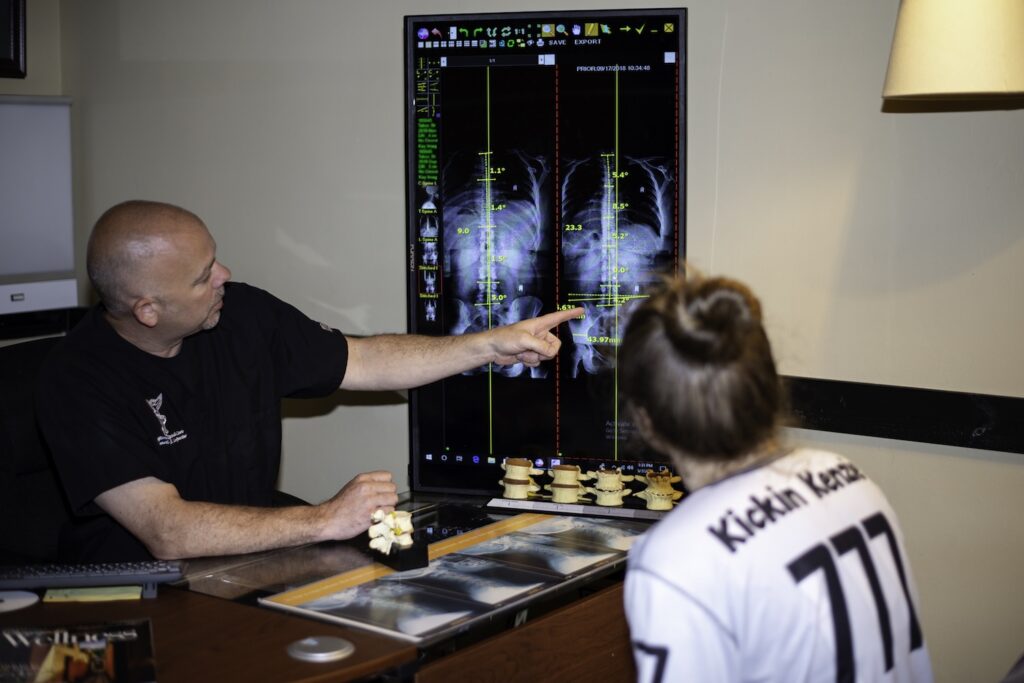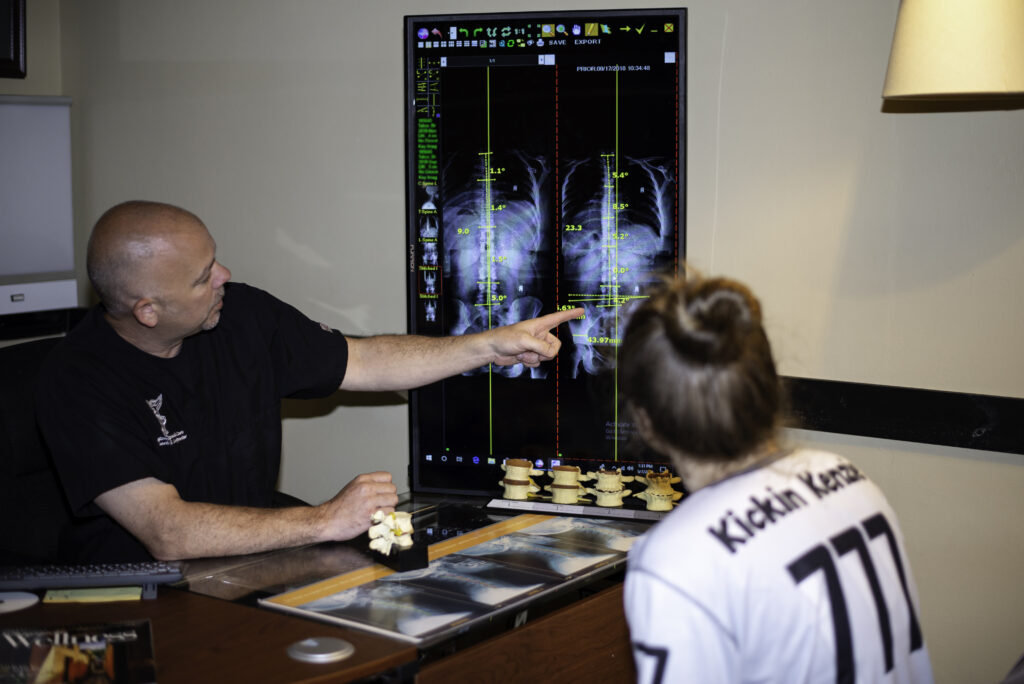When it comes to athlete recovery, you might wonder what reliable benefits can truly make a difference in your performance. Techniques like cryotherapy and massage can accelerate healing, while a balanced diet and proper hydration play vital roles in muscle repair. Furthermore, mental health strategies are becoming essential for maintaining motivation under pressure. Each of these elements contributes to not just recovery, but also long-term success in your sport. But what specific strategies should you consider to maximize these benefits?
Injury Prevention Strategies
When you prioritize injury prevention strategies, you can greatly reduce the risk of setbacks in your athletic performance. Taking proactive steps not only keeps you in the game but also enhances your overall training experience.
Start by evaluating your physical condition and identifying any weaknesses or imbalances. This awareness allows you to tailor your workouts to address specific areas that need strengthening or flexibility improvements.
Incorporating dynamic warm-ups before your activities is essential. These movements increase blood flow, improve range of motion, and prepare your muscles for action.
Likewise, cooling down and stretching after workouts help maintain flexibility and reduce muscle tightness, which can lead to injuries.
Don't underestimate the importance of proper technique in your sport. Whether you're running, lifting weights, or engaging in team sports, using the correct form minimizes stress on your joints and muscles.
If you're unsure about your technique, consider working with a coach or attending workshops.
Cross-training is another effective strategy. Engaging in different sports or exercises can help prevent overuse injuries by balancing the workload across various muscle groups.
Additionally, listen to your body. Pay attention to any signs of fatigue or discomfort, and don't hesitate to take rest days when needed.
Finally, maintain a balanced diet and stay hydrated. Proper nutrition supports your body's recovery and keeps your muscles functioning at their best.
Enhanced Muscle Repair
When you prioritize recovery, you'll notice enhanced muscle repair that speeds up tissue regeneration.
This not only helps reduce muscle soreness but also improves blood circulation, keeping your body in peak condition.
Accelerated Tissue Regeneration
Many athletes seek ways to enhance their recovery, and accelerated tissue regeneration plays an essential role in muscle repair. When you push your body to its limits, the muscle fibers can suffer micro-tears, which is a natural part of building strength.
However, if you want to see progress and avoid setbacks, promoting faster recovery is vital. By incorporating techniques like cryotherapy, electrical stimulation, and advanced compression therapies, you can considerably speed up the healing process.
These methods increase blood flow and nutrient delivery to the damaged tissues, enabling your body to repair itself more efficiently. This means you won't be sidelined for as long, allowing you to return to training and competition sooner.
Additionally, focusing on nutrition can also enhance tissue regeneration. Consuming a balanced diet rich in protein, vitamins, and minerals will provide the building blocks your muscles need to recover effectively.
Hydration is equally important, as it supports overall cellular function and helps flush out toxins.
Reduced Muscle Soreness
After addressing tissue regeneration, it's important to contemplate how reducing muscle soreness can further enhance your recovery. When you experience less soreness, you're more likely to engage in your next workout or training session with confidence and enthusiasm. This can lead to increased consistency in your training routine, which is vital for long-term athletic success.
Incorporating recovery strategies like foam rolling, stretching, or massage can greatly alleviate muscle soreness. These methods help break down muscle tightness and promote a quicker return to your peak performance levels.
You may also find that active recovery techniques, such as light jogging or swimming, can flush out lactic acid and reduce discomfort.
Moreover, when muscle soreness is minimized, you're less prone to injuries. It allows you to maintain proper form and technique, which can be compromised when you're in pain. This means you can push your limits safely and effectively.
Ultimately, focusing on reducing muscle soreness not only speeds up your recovery but also enhances your overall athletic performance, helping you achieve your goals more efficiently. Embrace these recovery practices, and you'll feel the difference in how you train and perform.
Improved Blood Circulation
Improved blood circulation plays an important role in enhancing muscle repair, allowing your body to recover more efficiently after intense workouts. When you engage in physical activity, your muscles experience tiny tears, which need proper nutrients and oxygen to heal. Enhanced blood flow delivers these crucial components directly to the affected areas, speeding up the recovery process.
By incorporating practices like massage therapy, compression garments, or active recovery exercises, you can boost circulation greatly. These methods not only promote blood flow but also help flush out metabolic waste, reducing inflammation and soreness. As a result, you'll notice less downtime between training sessions, enabling you to maintain a consistent workout routine.
Moreover, improved circulation helps deliver essential hormones and enzymes that support muscle growth and repair. When your body receives adequate blood supply, it can effectively manage the recovery phase, leading to stronger and more resilient muscles.
Ultimately, prioritizing improved blood circulation can make a considerable difference in your overall athletic performance. So, make it a point to integrate strategies that enhance circulation into your recovery plan, and watch as your body responds positively to the demands of your training.
Improved Performance Metrics
Athlete recovery plays an essential role in enhancing your performance metrics, allowing you to push your limits and achieve personal bests. When you engage in effective recovery practices, you're not just resting; you're actively improving your body's ability to perform. Recovery strategies, such as proper nutrition, hydration, and rest, can lead to significant gains in strength, speed, and endurance.
By incorporating recovery techniques like stretching, foam rolling, and massage, you can reduce muscle soreness and stiffness, which helps you maintain a higher intensity in your training sessions. This means you can train harder and longer without risking injury. Consistently prioritizing recovery allows your muscles to repair and rebuild, translating into better performance on the field or court.
Additionally, a well-structured recovery routine helps improve your energy levels. When your body gets the time it needs to recuperate, you'll notice an increase in your stamina during workouts or competitions. You'll find that you can sustain your energy for longer periods, enabling you to optimize your performance metrics systematically.
Moreover, quality recovery can enhance your technique. When you're not fatigued, you're more likely to maintain proper form and execute movements effectively, reducing the risk of errors that could hinder your performance.
Ultimately, by focusing on recovery, you set the foundation for continuous improvement, ensuring that you're always ready to take on new challenges and break through barriers in your athletic journey.
Mental Health Benefits
Recovery isn't just about physical gains; it also plays a significant role in your mental health. As an athlete, you know the pressure to perform can be overwhelming. Taking time to recover allows you to recharge mentally, reducing stress and anxiety. When you prioritize recovery, you're not just easing physical fatigue; you're also alleviating mental strain that can come from intense training and competition.
Engaging in recovery techniques—like proper rest, nutrition, and mindfulness—can help you develop a more positive mindset. By allowing your body to recuperate, you create space for your brain to process experiences, fostering emotional resilience. This can lead to improved focus and motivation when you return to training, as you'll feel refreshed and ready to tackle challenges head-on.
Moreover, recovery time can foster a sense of accomplishment and self-awareness. It gives you the opportunity to reflect on your goals and progress, promoting a healthier self-image. You'll start to appreciate the journey rather than just the end result.
Social connections also thrive during recovery periods; spending time with teammates or friends can enhance your support network, further boosting your mental well-being.
Incorporating mental health strategies into your recovery routine not only enhances your athletic performance but also equips you with the tools needed to manage stress and maintain a balanced life. Embrace recovery as an essential component of your training, and you'll see significant improvements in both your mental and physical health.
Increased Flexibility and Mobility
Incorporating recovery techniques into your routine can greatly enhance your flexibility and mobility.
You'll notice an improved range of motion, which not only boosts your athletic performance but also helps in preventing injuries.
Plus, better flexibility contributes to improved posture alignment, making everyday movements feel easier and more natural.
Enhanced Range of Motion
When it comes to enhancing your performance, improving your range of motion is vital for achieving greater flexibility and mobility. A well-developed range of motion allows you to execute movements more efficiently, which can lead to improved athletic performance.
You'll find that with increased flexibility, you can perform a wider variety of exercises, enhancing your overall training routine.
Incorporating recovery techniques such as stretching, foam rolling, and mobility drills can greatly enhance your range of motion. These practices help to loosen tight muscles and improve joint function, allowing you to move more freely.
The more you work on your flexibility, the better you'll feel during workouts and competitions.
Moreover, an enhanced range of motion can help you maintain proper form during exercises, which is vital for maximizing effectiveness. When your body can move through its full range without restrictions, it not only boosts performance but also contributes to a more enjoyable experience in your athletic pursuits.
Prioritizing recovery and focusing on improving your range of motion will ultimately lead to more successful training sessions and a more fulfilling athletic journey.
Injury Prevention Strategies
Improving your range of motion not only enhances performance but also plays a significant role in preventing injuries. When you incorporate flexibility and mobility training into your routine, you're equipping your body to handle the demands of your sport more effectively.
Tight muscles and restricted joints can lead to imbalances that increase your risk of strains and sprains.
To boost flexibility, consider dynamic stretching before your workouts, which prepares your muscles for action. Post-activity, static stretching helps lengthen muscles and improves recovery.
Incorporating yoga or Pilates can also enhance your overall mobility, allowing for better movement patterns and reducing the likelihood of injuries.
In addition, focusing on specific muscle groups relevant to your sport can help. For instance, runners should concentrate on their hips and hamstrings, while swimmers might benefit from shoulder and back stretches.
Consistency is key—make flexibility training a regular part of your regimen. By prioritizing increased flexibility and mobility, you'll not only optimize your performance but also create a solid foundation for injury prevention.
Make these strategies a habit, and you'll notice the positive impact on your athletic journey.
Improved Posture Alignment
Achieving improved posture alignment hinges on your commitment to increased flexibility and mobility. When you prioritize these aspects, you set the foundation for better alignment, which can greatly enhance your athletic performance. Poor posture can lead to a host of issues, from muscle imbalances to chronic pain, and focusing on flexibility helps to counteract these problems.
Incorporating dynamic stretching, yoga, or targeted mobility drills into your routine can help you achieve greater range of motion in your joints and muscles. As you develop this flexibility, you'll find that your body naturally aligns itself more effectively, reducing the strain on your spine and surrounding structures. This not only improves your posture but also boosts your overall athletic efficiency.
Moreover, improved posture can enhance your breathing and core stability, allowing you to perform at your best during training and competition. You'll notice that with a focused approach to flexibility and mobility, you'll feel more balanced and agile.
Ultimately, investing in these components of your recovery not only benefits your posture but also lays the groundwork for a healthier, more resilient body. Embrace this journey, and watch your athletic performance soar.
Faster Recovery Times
Faster recovery times are essential for athletes aiming to enhance their performance and reduce the risk of injury. When you're pushing your limits, your body needs efficient recovery to bounce back stronger. A quicker recovery means less time sidelined by soreness or fatigue, allowing you to maintain a consistent training schedule. This consistency is vital for improving your skills and reaching your goals.
With effective recovery strategies, you'll notice significant improvements in how your body responds after intense workouts or competitions. Techniques such as active recovery, stretching, and proper hydration can help alleviate muscle soreness and stiffness, ensuring you're ready for your next session.
When you prioritize recovery, you're not just resting; you're actively supporting your body's healing processes. Additionally, incorporating therapies like massage or physiotherapy can further expedite recovery times. These treatments promote blood flow, reduce inflammation, and aid in muscle repair.
Nutritional Support for Recovery
Many athletes overlook the essential role nutrition plays in recovery, but it's important for optimizing performance. Proper nutritional support helps your body repair itself after intense training and competition, ensuring you're ready for the next challenge.
By focusing on key nutrients, you can greatly enhance recovery times and overall athletic performance.
Here are three key components of your recovery nutrition plan:
- Protein: Consuming adequate protein is crucial for muscle repair and growth. Aim for a protein-rich meal or snack within 30 minutes after exercise. This will help replenish your muscles and promote recovery.
- Carbohydrates: Carbs are your body's primary energy source. After strenuous activity, replenish your glycogen stores with healthy carbohydrates. This not only speeds up recovery but also prepares you for your next workout.
- Hydration: Staying hydrated is often underrated, yet it's essential for recovery. Water aids in nutrient transport, temperature regulation, and waste removal.
Make sure to drink fluids before, during, and after your workouts.
Boosted Immune Function
Recovery doesn't just stop at nutrition; it also involves supporting your immune system. As an athlete, you're constantly pushing your body to the limit, which can leave you vulnerable to illnesses. Strengthening your immune function is essential for maintaining your health and ensuring you can train consistently.
One of the best ways to boost your immune system is through proper hydration. Drinking enough water helps your body flush out toxins and supports overall function. You should also pay attention to your vitamin intake, particularly vitamins C and D, which are known for their immune-boosting properties. Foods rich in these vitamins, like citrus fruits and leafy greens, should be staples in your diet.
Sleep is another vital factor in immune health. When you sleep, your body repairs itself, and your immune system gets a chance to recharge. Aim for 7-9 hours of quality sleep each night to help your body recover effectively.
Additionally, incorporating stress-relief techniques, like yoga or meditation, can lower cortisol levels, which, when elevated, can weaken your immune response.
Regular, moderate exercise also plays a role in immune function. While intense training can temporarily suppress your immune system, moderate activities, like walking or cycling, can enhance it.
Finally, consider working with a healthcare professional to determine if supplements could benefit your immune health.
Long-term Athletic Longevity
Maintaining long-term athletic longevity hinges on adopting sustainable practices that support both your body and mind.
To thrive in your athletic pursuits over the years, you need to be proactive about recovery and overall wellness. By implementing a balanced approach, you can guarantee that your body remains resilient and ready for the challenges ahead.
Here are three key strategies to enhance your athletic longevity:
- Prioritize Recovery: Recovery isn't just a post-workout luxury; it's vital. Incorporate techniques such as active recovery, stretching, and adequate sleep into your routine. This will help reduce muscle soreness and improve performance.
- Nourish Your Body: Fueling your body with the right nutrients can greatly impact your longevity. Focus on a balanced diet rich in whole foods, including lean proteins, healthy fats, and plenty of fruits and vegetables. Hydration is equally important—don't underestimate the power of water in maintaining your athletic performance.
- Listen to Your Body: Pay attention to what your body tells you. If you're feeling fatigued or notice any pain, don't push through. It's better to take a step back and allow for proper healing than to risk long-term injuries that could sideline you.
Conclusion
Incorporating trusted recovery strategies can greatly enhance your athletic performance and longevity. By focusing on injury prevention, muscle repair, and mental health, you'll not only boost your performance metrics but also improve your overall well-being. Prioritizing nutritional support and hydration will help you recover faster and keep your immune system strong. Embrace these practices, and you'll set yourself up for sustained success in your sport while enjoying the journey along the way.



